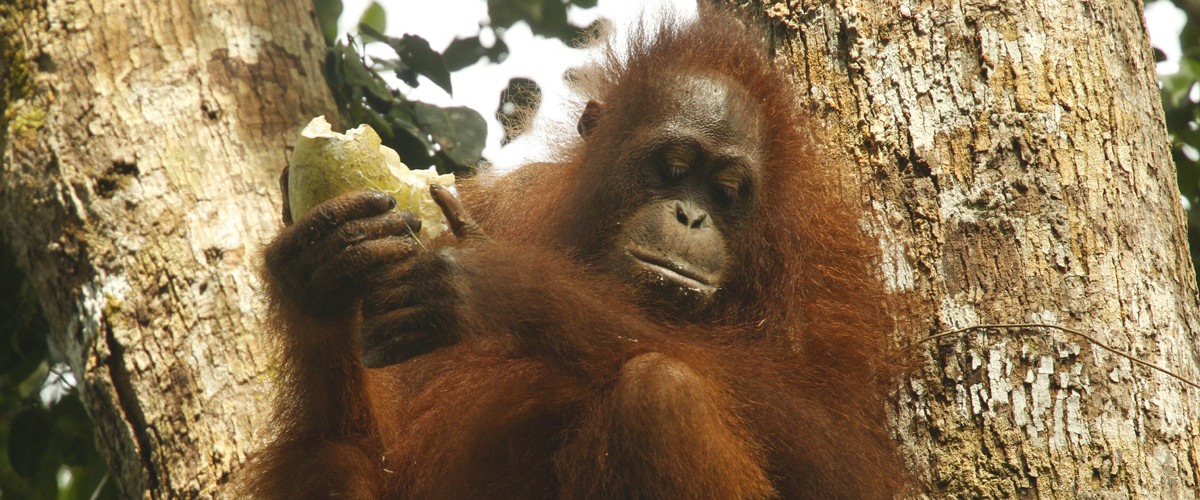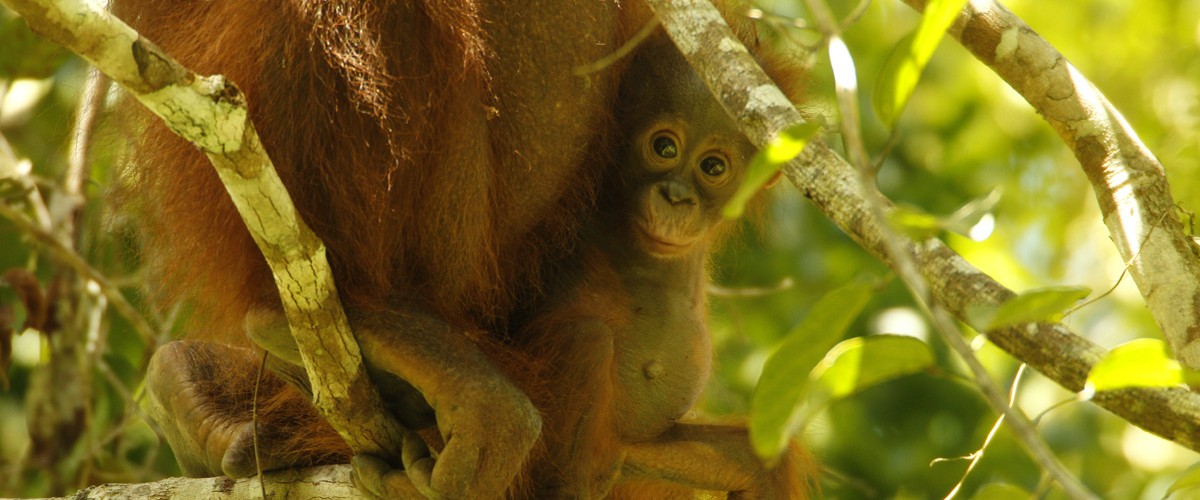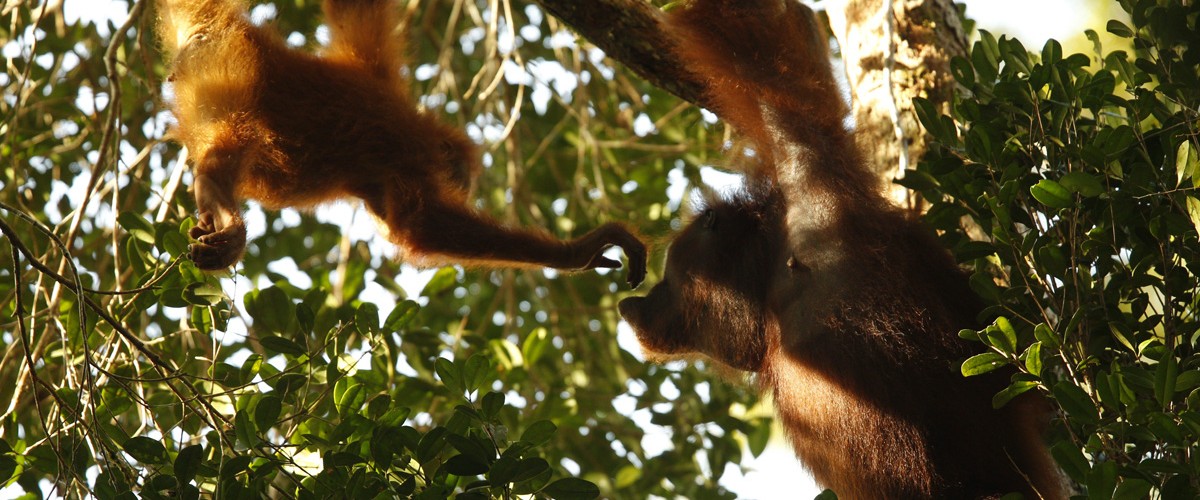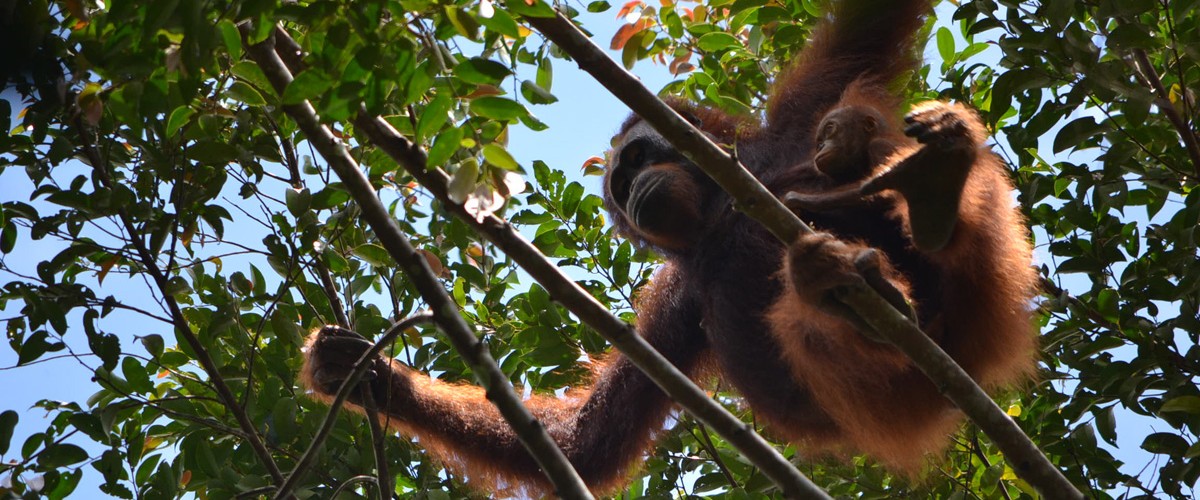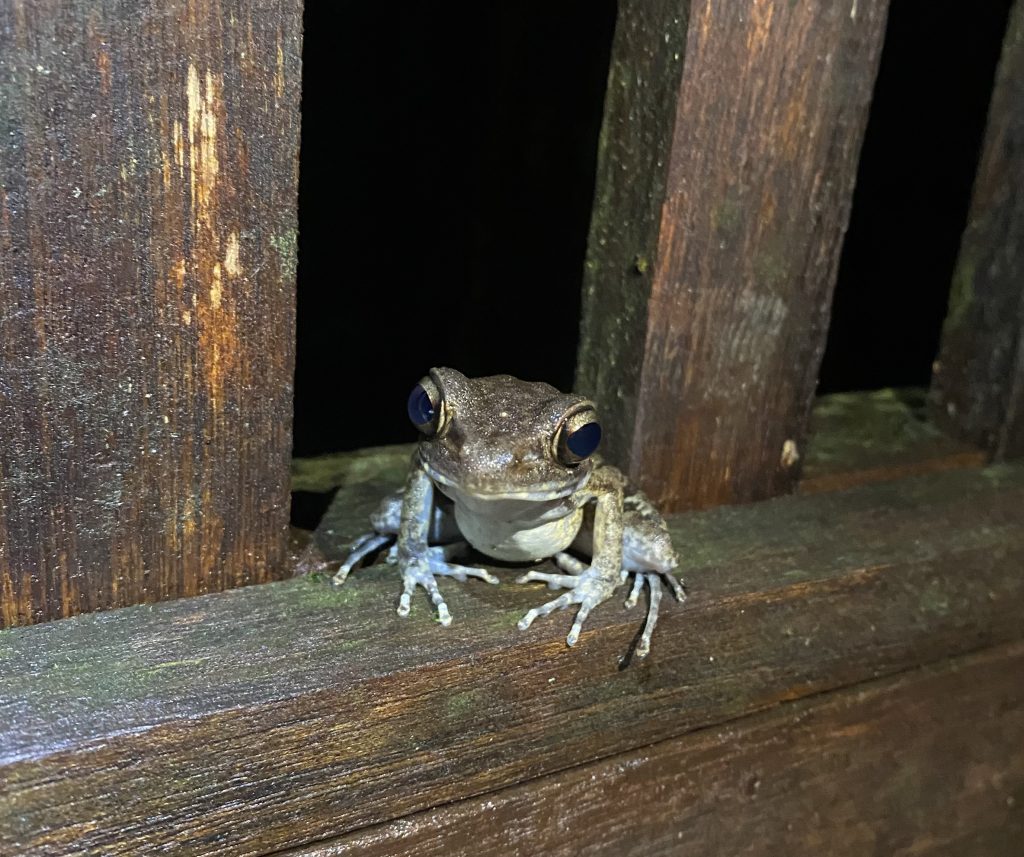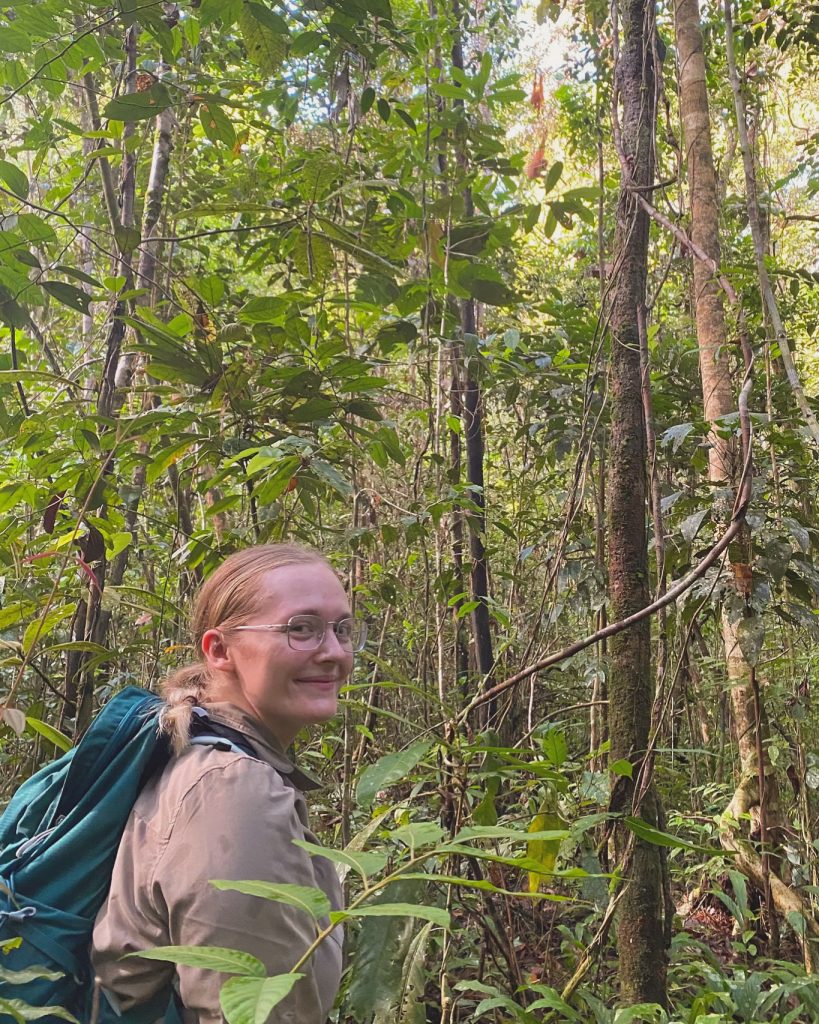By Tia Mottram, Volunteer Research Assistant
It has forever been a goal of mine to be involved in orangutan conservation. Travelling over 7000 miles from Liverpool, England, I am now lucky enough to call Gunung Palung National Park my current home. My trip to the forest began with a 2 hour car journey to Sukadana. As each mile passed by, the breath-taking views of the mountains became closer and closer. At that moment I was filled with gratitude and excitement for what was to come. Little did I know, I was in for a rather long journey ahead of me. The sky was clear and it felt like a great day to head to camp by boat up the river. Around 1.5 hours into the journey, we were faced with an engine fault which meant we could no longer travel and were isolated on the boat. Whilst we waited for help, I was introduced to the tranquil sounds of nature surrounding me which put me into a comfortable nap.
After 5 hours of being stuck, we were finally rescued and continued our journey in the darkness with the help of our headlamps and the stars above. The atmosphere transformed with the presence of nocturnal beings surrounding us and felt as though we were on a night safari excursion with various species hopping on the boat for a ride. At one point, I counted 6 different species of spiders on my body along with other insects. The field of conservation isn’t always smooth sailing and despite the obstacles we faced, the experience created a great story to tell whilst also preparing me for the unpredictability of forest life.
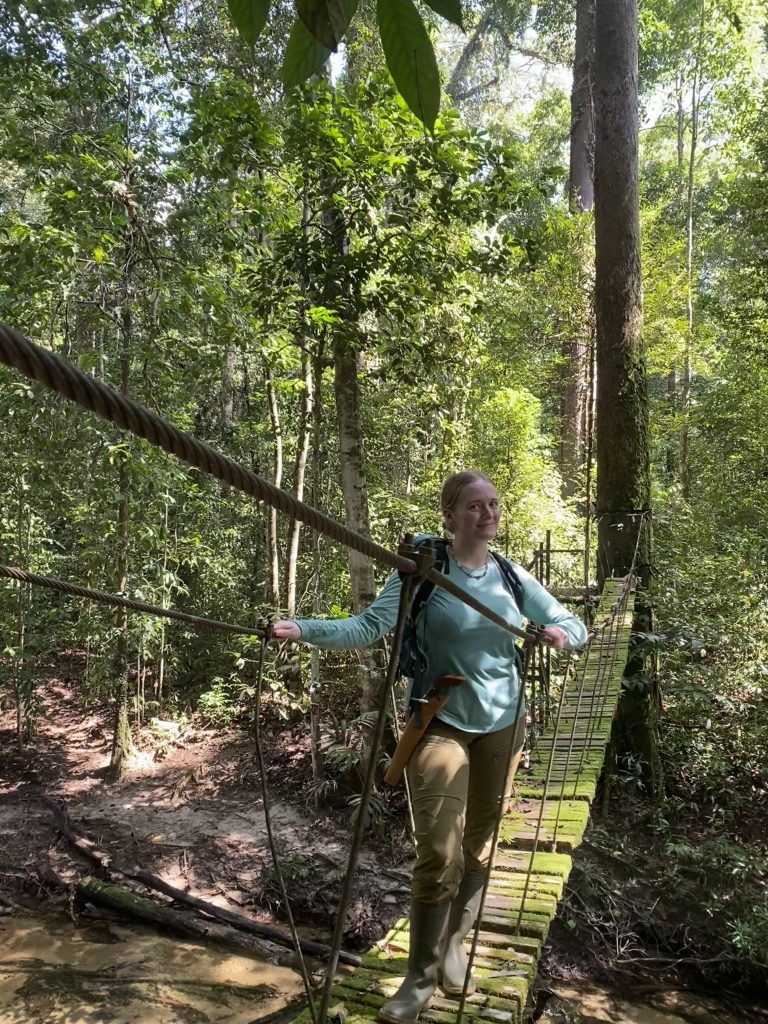
My camp cabin is situated directly facing the river with soothing sounds of the waterway flowing, helping me sleep peacefully at night. In the morning, the gibbons take the role of a natural alarm clock where they sing a series of song like vocalisations, reminding me of whom I share my new forest home with. The team at the Cabang Panti Research Station consists of welcoming, hard-working individuals who always have big smiles on their faces. In my first week of joining the team, I was also greeted by a frog at my camp who returned for a second night in the same spot to make sure I settled in.
There are many flying friends in the forest that differ in morphology. Throughout the daytime, butterflies surround the fragrant smelling laundry and flutter around camp offering great photo opportunities if you are prepared to be patient. During my time in Cabang Panti, I have developed a strong curiosity about the moths. Almost every night I witness a different species, which sparks my interests further. I have been fortunate to see extremely large individuals who are friendly enough to sit on my hand for me to observe. GPNP is extremely diverse when it comes to winged insects and I am constantly amazed at the abundance of such species in the forest.
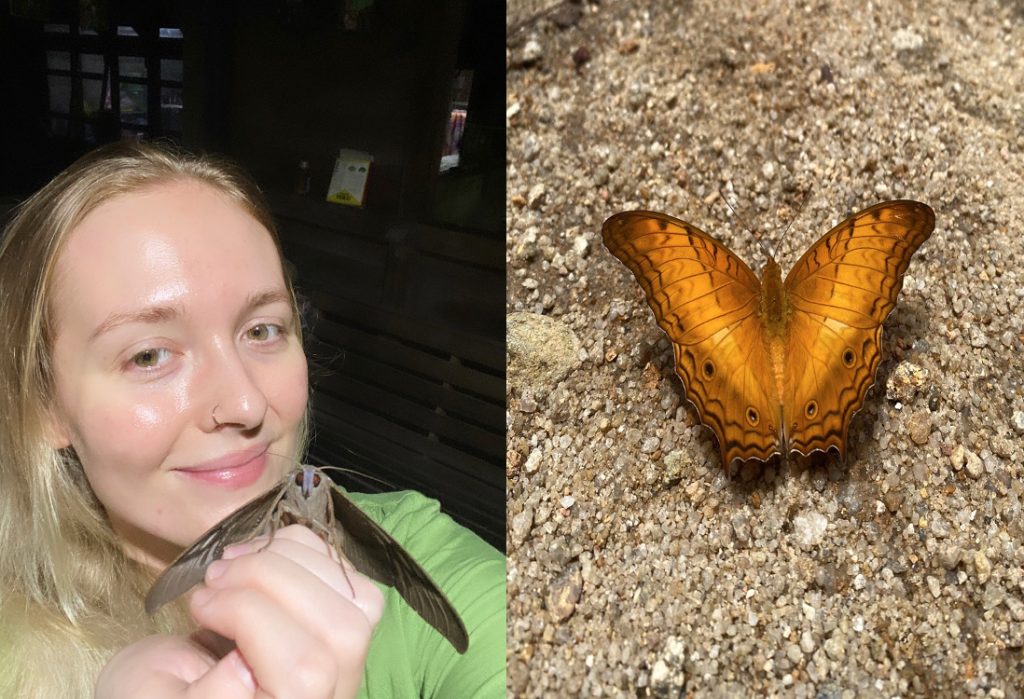
So far, I have spent 6 weeks in Cabang Panti learning new skills every day. The duties of my role involve different tasks between the lab and the field, which share equal importance. Field days include orangutan search missions, a series of orangutan follow days and phenological monitoring. My favourite moment during an orangutan follow day was when we were monitoring Mother Bibi and juvenile offspring Bayas. I sat on the forest floor leaning against a tree taking GPS data with a perfect view of Bibi eating leaves, whilst Bayas was building confidence nearby in the trees practising his swinging techniques. Occasionally, he would appear to be intrigued by our presence and would look right at us. Noticing how the young ape appeared to be interested, reminded me of how similar we are to the species. I had a moment of realisation where i thought “wow, I am really here studying wild orangutans in Borneo”. For many years of my life I would dream of such experiences, and now it’s my day-to-day reality.
Witnessing special moments in the forest with orangutans and other wildlife makes all the lengthy paperwork, 4 flights, delayed boat journeys and countless hours in the humid forest worth it. Each day I feel extremely grateful that I can experience living amongst unique flora and fauna in GPNP. Already in my short time here I have experienced sightings of incredible species including red leaf monkeys. I may be far from my comforts back home in England but like the forest, we learn to adapt to change. When we put ourselves in situations where we are able to evolve, we allow ourselves to transform into better versions of our old selves. I find myself doing this by learning new skills, experiencing unique moments, and meeting new friends at camp and in the forest along the way. This is only the beginning of my time here with the Gunung Palung Orangutan Conservation Program and I look forward to my remaining months of learning and adventures in GPNP.
Management of Cabang Panti Research Station is conducted by the Gunung Palung National Park Office (BTN-GP) in collaboration with GPOCP/YP. Scientific research is carried out in conjunction with the Universitas Nasional (UNAS) and Boston University.
